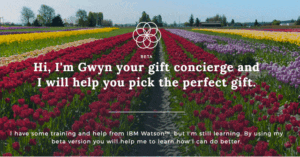IBM’s Iwata on the Future of Watson and AI

Sure, chatbots are great, but AI and machine learning hold much greater potential for marketers.
“AI is more than just speech-to-text conversational bots,” said Jon Iwata, senior vice president, marketing and communications, IBM, speaking at the ANA’s recent Masters of B2B Marketing event. “What’s really becoming a reality is the ability to read feelings and put those things into action.”
In the new world of digital engagement, companies need to practice marketing in a more agile fashion. Digital marketing is morphing into cognitive marketing, where technology helps marketers anticipate consumer behaviors and needs, he said.
Years ago, noted Iwata, IBM researchers set out to create a technological capability to understand the world of data in all its forms. Eighty percent of all data being created today is unstructured data—think tweets or videos—that computers typically can store and process—but they can’t necessarily understand it. This was the capability they aimed to achieve with Watson.
As an example, Iwata explained how Watson answered a question on Jeopardy. The system would have to parse the question’s parts of speech and look at all the different options of what the question might be asking. Then, it would search through hundreds of millions of documents for possible answers. It is essential for Watson to come up with as many possibilities as it can at this point, because if the right answer isn’t in the initial sweep, Watson can’t answer the question. After that, Watson merges and ranks the possible answers, looking at variables such as whether the time or location in a particular answer makes sense.
Different companies are starting to rollout “Watson powered” advertising, he noted. An example of something like this would be a site online that offers the option to enter what ingredients you have in your refrigerator and find out what you could make for dinner using those items.
1-800 Flowers is using an instance of Watson called Gwyn to help people decide which product to send. Customers would have a natural conversation back and forth to help narrow and define the query, to help decide what to buy. The US Tennis Association used Watson to create a cognitive fan experience on a mobile app at the US Open, and GM put Watson in cars with Onstar Go to automate driver interactions, such as personalizing radio station selections or notifying the driver when the car needs fuel.
When using AI, marketers need to be clear about when it is being used, and the sources of data used to train the system, he noted, adding that people are fine with sharing information with companies, as long as the trade is equal and they get something in return. “Consumers coming to expect marketing that is relative to them in the moment.”
Technology like Watson can be applied in long-term CRM programs as well, he said.
“It’s like any relationship—the more time you spend with someone, the more relevant and helpful you can be,” citing as an example Spotify can identify a person’s emotional state by their music choices over time. “That learning accumulates.”
Related Articles:
“Cats Are Everywhere” Nabs B2 Best in Show at ANA
Live From ANA: Make Customers the Focus of Your B2B Story






























